Rheumatic, Musculoskeletal Diseases
- Women’s Health and Wellness
- Men’s Health and Wellness
- Mental Health Treatment
- Integumentary System, Skin Diseases
- Endocrine Conditions
- Cardiovascular Conditions Treatment
- Autoimmune Disorders, Immune System Conditions
- Respiratory System Conditions
- Rheumatic, Musculoskeletal Diseases
- Gastrointestinal Conditions
- Neurological Conditions, Pain Management

Natural Pain Management at Naturopath Osteopath Clinic – Rheumatologic and musculoskeletal conditions
Rheumatologic and musculoskeletal conditions are a group of medical disorders that affect the joints, muscles, and tendons. Symptoms may include pain, stiffness, swelling, and redness. Conditions within this group include rheumatoid arthritis (RA), psoriatic arthritis, ankylosing spondylitis (AS), gout, and fibromyalgia. Treatment options vary depending on the specific condition, but generally involve medication and/or therapy.

Rheumatic Musculoskeletal Diseases Treatment (Arthritis / Arthralgia, Joint Pain, Osteoarthritis)
Naturopathic physicians, a licensed health care provider who uses natural therapies to treat a variety of medical conditions, including rheumatologic and musculoskeletal conditions. Rheumatologic and musculoskeletal conditions are a type of medical problem that can cause pain, inflammation, and limited movement in the joints. These issues can be caused by a variety of factors, such as infection, autoimmune disease, or physical injury. A naturopathic doctor may use a variety of treatments to help reduce symptoms and improve quality of life. Naturopathic Doctor use a variety of natural therapies, including herbs, supplements, and acupuncture, to help their patients feel better. Naturopathic doctors are also well-educated in conventional medical treatments and can provide guidance on when these treatments are appropriate.

Arthritis / Arthralgia (joint pain)
Arthritis and arthralgia (joint pain) are chronic conditions that can significantly reduce the quality of life for those affected. The two conditions share many symptoms, and both must be treated with a combination of medication, rest, and physical therapy. Arthritis is the most common condition affecting the joints. Arthritis is a widespread condition that affects the joints, bones and muscles. The main symptoms of arthritis are pain and inflammation in the joints. Symptoms can come on gradually, over time or suddenly. Arthralgia affects an estimated 10 million people, making it the second most common joint condition. Arthralgia can affect any joint in the body, but it is most common in the joints of the hands, feet, and hips.

Chronic fatigue and fibromyalgia (Chronic Pain)
Chronic fatigue syndrome (CFS) and fibromyalgia (Chronic Pain) are two of the most common chronic conditions in the North America. Both conditions are characterized by debilitating fatigue that lasts for more than six months and pain in various parts of the body. People with chronic fatigue syndrome often have a lot of energy but no stamina, and they sometimes have a feeling of being tired all the time. People with fibromyalgia usually have widespread pain in many areas of the body.

Muscle Tension
Muscle tension is a common problem that patients with rheumatologic and musculoskeletal disorders experience. Muscle tension can lead to pain, stiffness, and other problems. There are several ways to reduce muscle tension. Some treatments include stretching, massage, exercise, and medication. Muscle tension can also be a result of everyday activities, such as cleaning the house or working at a desk. The resulting pain can make everyday activities difficult or impossible. If left untreated, muscle tension can lead to further injury and even chronic pain.
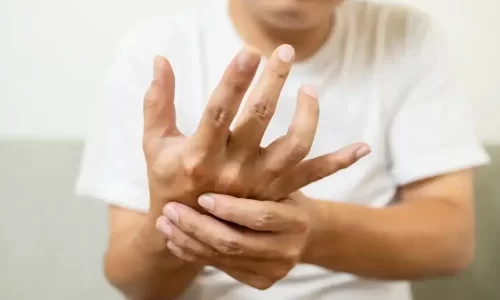
Nerve/Neurological Pain
Nerve neurological pain can be a result of a variety of diseases and conditions, but is most commonly caused by nerve damage or injury. This type of pain can be particularly difficult to treat, as the underlying cause often cannot be determined. However, in some cases it may require more aggressive treatment strategies, such as stem cell therapy or neurostimulation. Rheumatologic and musculoskeletal disorders are the most common causes of nerve pain. These disorders can damage the nerves themselves or the connections between the nerves and muscles. This can cause pain in areas that shouldn’t have pain, such as the hands and feet. Other nerve neurological pains include those from the vagus nerve (which helps to control heart rate and breathing), the spinal cord, and the peripheral nerves.
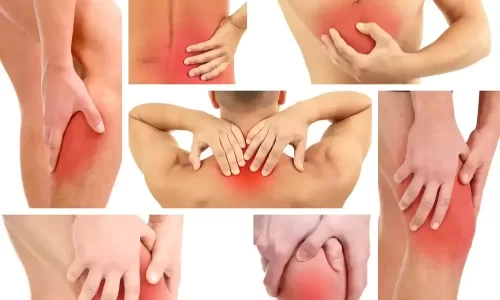
Neck Pain, Back Pain, Shoulder Pain, Hip Pain, Knee Pain
Rheumatologic and musculoskeletal disorders (rheumatism and musculoskeletal pain) are the most common causes of chronic disability. Rheumatologic and musculoskeletal pain can be caused by many different things, including injuries, diseases, and conditions. The most common causes of musculoskeletal pain include neck pain, back pain, shoulder pain, hip pain, and knee pain. Each of these types of pain can be very debilitating and difficult to manage. What are the most common causes of musculoskeletal pain? Rheumatologic and musculoskeletal pain can be caused by many different things, including injuries, diseases, and conditions. National Institute for Health and Care Excellence (NICE) defines musculoskeletal pain as a physical or mental discomfort in one or more of your joints, muscles, bones, tendons, etc. These disorders can be caused by a variety of factors, including previous injuries, genetics, and age. Musculoskeletal disorders can be debilitating and require treatment from a qualified professional.
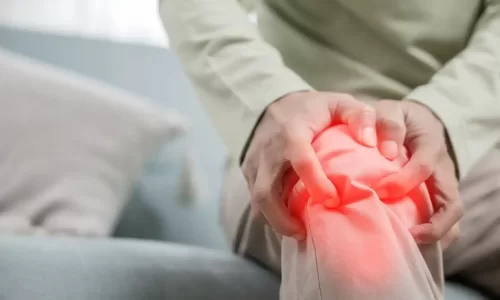
Rheumatoid Arthritis
Rheumatoid arthritis (RA) is a chronic autoimmune disease in which the body’s immune system attacks the joints. The disease can damage the cartilage, bone, and other tissues in the joint. Rheumatoid arthritis is most common in women over age 45 and usually begins with pain and swelling in one or more joints. The condition can range from mild to severe, and it can be very disabling. Symptoms can vary, but generally include pain, swelling, and stiffness in joints. RA is also known to cause significant physical and emotional limitations.
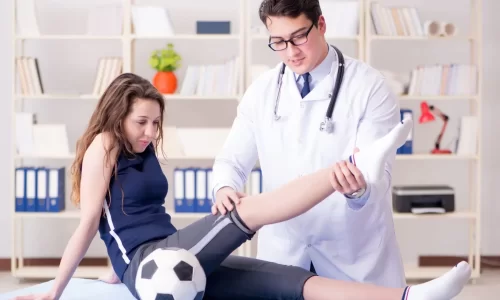
Sports injuries
Rheumatologic and musculoskeletal conditions are a common source of sports-related injuries. Athletes with rheumatologic conditions such as rheumatoid arthritis (RA) are at greater risk for developing sports-related injuries than athletes without RA. Musculoskeletal conditions, such as osteoarthritis, can lead to pain, stiffness, and decreased mobility. Injuries can also result from trauma, such as falls or collisions. Sports injuries can be extremely painful and can cause long-term damage if not treated properly. Rheumatologic and musculoskeletal injuries are two types of sports injuries that can occur as a result of physical activity. Rheumatologic injuries are caused by inflammation in the body, while musculoskeletal injuries involve damage to the muscles, tendons, and bones. Both types of injuries may require surgery to correct the damage, and both can lead to chronic pain.
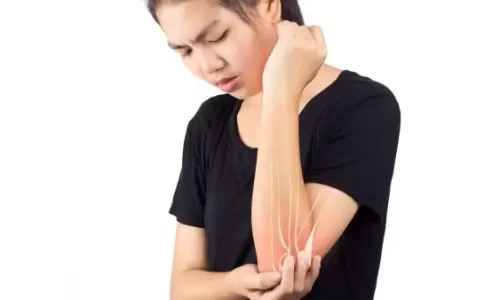
Tendonitis
Tendonitis is a common problem that can be caused by a number of different factors. Musculoskeletal diseases, such as rheumatoid arthritis (RA) and chronic pain, are the most common causes of tendonitis. Other causes of tendonitis include overuse, trauma, and genetics. Tendonitis rheumatologic and musculoskeletal (TRAM) is a common inflammatory condition that can affect any tendon, joint or muscle in the body. TRAM is most commonly caused by rheumatic diseases such as rheumatoid arthritis (RA), juvenile idiopathic arthritis (JIA) and ankylosing spondylitis (AS).
Naturopath Osteopath Clinic Services

Women’s Health and Wellness
Naturopathic doctors often specialize in women’s health and wellness, providing preventive care and support for women during all stages of life.

Men’s Health and Wellness
Men’s health and wellness is vitally important. Not only does the health of men directly affect their families, but it also has a significant impact on society as a whole.

Mental Health
Holistic approach may be particularly beneficial for people with mental health concerns, as it can help to address the underlying causes of their symptoms.
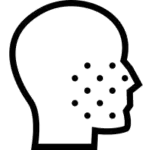
Integumentary System, Skin Conditions
Naturopathic doctor specializes in the integumentary system, which includes the skin, hair, and nails. Naturopathic doctors can treat a variety of skin conditions, such as acne, eczema, and psoriasis.

Endocrine Conditions
Some of the most common endocrine conditions that naturopaths help to treat include diabetes, thyroid dysfunction, and adrenal fatigue.

Cardiovascular Conditions
Naturopathic doctors provides holistic care and are able to help people with a wide range of cardiovascular conditions.

Autoimmune disorders, Immune System Condition
An immune system condition is any condition that affects the immune system. This can include things like infections, autoimmune diseases, and allergies.

Rheumatologic and Musculoskeletal Conditions
Rheumatologic and musculoskeletal conditions are a type of medical problem that can cause pain, inflammation, and limited movement in the joints.

Respiratory System Conditions
A naturopathic doctor (ND) holistic approach that focuses on the whole person, rather than just the symptoms of the illness. Naturopaths believe that the body has an innate ability to heal itself.

Gastrointestinal Conditions
A naturopathic doctor for gastrointestinal conditions typically uses a variety of natural therapies to help restore the health of the gastrointestinal tract.

Neurology and Pain Management
Naturopathic doctors are trained in a variety of natural therapies which can be used to help treat neurological conditions. Some of these therapies include botanical medicine, homeopathy, and acupuncture.
If you liked this content and found it to be informative, please rate it.
We are sorry that this post was not useful for you!
Let us improve this post!
Tell us how we can improve this post?
